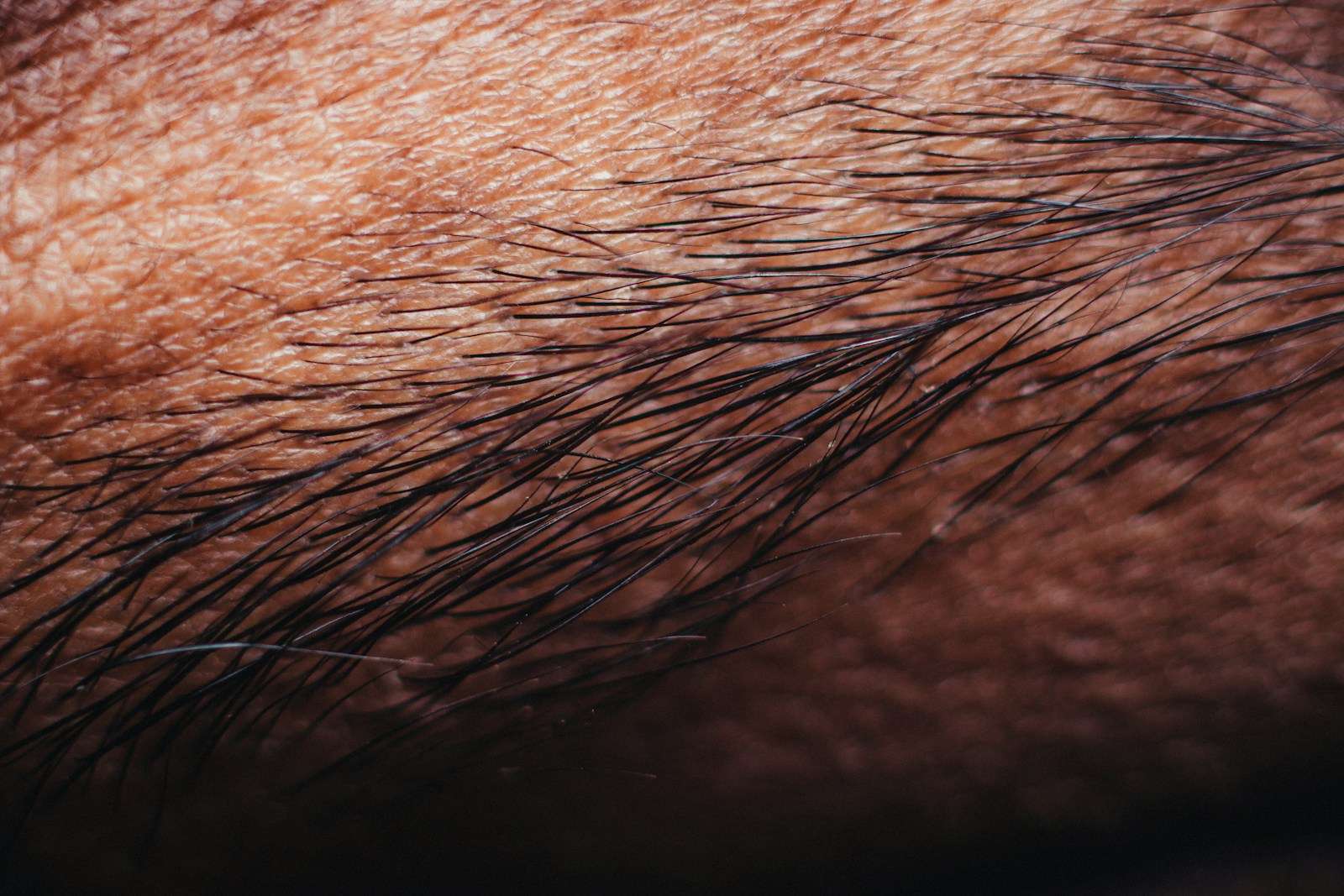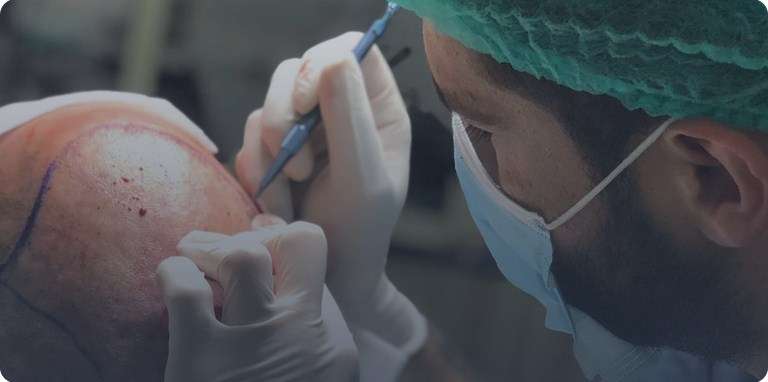Introduction
Preparing for a hair transplant surgery requires careful consideration and adherence to certain pre-operative instructions. By following these guidelines, you can maximize the success of your procedure and ensure a smooth and efficient process.
İçindekiler
Overview of Pre-Operative Instructions for Hair Transplant
Before undergoing a hair transplant, it is important to follow these pre-operative instructions to ensure optimal results:
-
Stop Smoking: Smoking can hinder the healing process and adversely affect the outcome of your hair transplant. It is recommended to quit smoking at least two weeks prior to the surgery.
-
Avoid Blood Thinners: Certain medications and substances, such as aspirin and NSAIDs, can thin the blood and increase the risk of bleeding during the procedure. Consult with your doctor about temporarily discontinuing these medications.
-
Stay Hydrated: Proper hydration is essential for a smooth surgery. Drink plenty of water in the days leading up to the procedure to maintain your body's fluid balance.
-
Avoid Alcohol and Caffeine: Alcohol and caffeine can dehydrate the body and interfere with the effectiveness of anesthesia. It is best to avoid consuming these substances for at least 48 hours prior to your surgery.
-
Avoid Hair Treatments: Refrain from dyeing, perming, or treating your hair in any way before your hair transplant surgery. This ensures that the hair follicles are in their natural state for transplantation.
-
Arrange Transportation: Since you will be under mild sedation during the procedure, it is important to arrange for someone to drive you home afterward. Ensure that you have a reliable means of transportation for your post-operative journey.
By following these pre-operative instructions, you can set yourself up for a successful hair transplant procedure and achieve the beautiful results you desire. Remember to consult with your hair transplant surgeon for personalized instructions based on your specific needs.
Consultation and Preparation
Before undergoing a hair transplant procedure, it is crucial to go through a consultation process and adequately prepare for the surgery.
Importance of Consultation before Hair Transplant
Consulting with a hair transplant specialist is essential to determine if you are a suitable candidate for the procedure. During the consultation, the surgeon will assess your hair loss pattern, examine your scalp, and discuss your expectations. This step helps in developing a personalized treatment plan that meets your needs and ensures realistic outcomes.
Preparing for the Hair Transplant Procedure
To ensure a successful hair transplant procedure, there are certain instructions you should follow:
-
Stop Smoking: Smoking can hinder the healing process and reduce the success rate of the transplant. It is advised to quit smoking at least two weeks before the procedure.
-
Avoid Alcohol and Blood Thinners: Alcohol and blood-thinning medications can increase bleeding. Therefore, it is advisable to refrain from consuming alcohol and stop taking blood thinners a week before surgery.
-
Avoid Hair Treatments: Refrain from coloring, perming, or treating your hair chemically for at least two weeks before the surgery.
-
Clean Your Scalp: Wash your scalp thoroughly on the day of the surgery to ensure cleanliness and remove any oils or products.
-
Avoid Caffeine: It is recommended to avoid caffeine on the day of the surgery as it can increase anxiety.
By following these pre-operative instructions, you can ensure that you are appropriately prepared for your hair transplant procedure, increasing the likelihood of successful results. Remember to consult with your surgeon for personalized instructions based on your specific needs.
Medications and Supplements
Instructions for Medications and Supplements before Hair Transplant
Before undergoing a hair transplant, it is crucial to follow certain pre-operative instructions to ensure a successful procedure and optimal results. Here are some guidelines regarding medications and supplements:
Medications to Avoid before Hair Transplant
-
Blood thinners: It is advisable to stop taking blood-thinning medications, such as aspirin, non-steroidal anti-inflammatory drugs (NSAIDs), and certain herbal supplements, as they can increase the risk of bleeding during the procedure.
-
Antidepressants: Some antidepressant medications can interfere with the anesthesia used during the hair transplant surgery. It is recommended to consult your doctor regarding the discontinuation of these medications before the procedure.
-
Vitamins and herbal supplements: Certain vitamins and herbal supplements, such as vitamin E, ginseng, and garlic supplements, can also increase bleeding risk. It's best to avoid these supplements for at least two weeks prior to the surgery.
-
Prescription medications: Inform your surgeon about any prescription medications you are currently taking. They will provide specific instructions regarding whether or not to continue taking them before the procedure.
Remember, following these pre-operative instructions is crucial for a safe and successful hair transplant surgery. Always consult with your surgeon or healthcare provider for personalized advice based on your specific medical history and current medications.
Smoking and Alcohol
Impact of Smoking and Alcohol on Hair Transplant
Smoking and alcohol consumption can have a negative impact on the success of your hair transplant procedure. They can interfere with blood circulation, slow down healing, and increase the risk of complications. It is important to abstain from smoking and alcohol prior to your surgery to ensure optimal results.
Guidelines for Smoking and Alcohol Consumption before Hair Transplant
-
No Smoking: Quit smoking for at least two weeks before your hair transplant surgery. Smoking can constrict blood vessels, reducing blood flow and oxygen supply to the scalp. This can compromise the growth of transplanted hair follicles.
-
Avoid Alcohol: To promote healthy blood circulation and a speedy recovery, refrain from alcohol consumption for at least one week prior to your procedure. Alcohol can thin the blood, increasing the risk of bleeding during and after surgery.
-
Fo
Hair Care and Styling
Hair Care Tips before Hair Transplant
Before undergoing a hair transplant procedure, it is important to take certain precautions to ensure the best results. Proper hair care leading up to the surgery can help facilitate the process and promote healthy hair growth afterward.
To prepare for a hair transplant, it is recommended to avoid harsh hair treatments such as chemical processing or bleaching. Keeping your hair clean and well-nourished with a balanced diet can also contribute to a successful procedure.
Avoiding Hair Styling Products before Hair Transplant
In addition, it is essential to avoid applying hair styling products before your hair transplant procedure. These products can leave residue on your scalp, making it harder for the surgeon to locate and extract healthy hair follicles.
Avoid using gels, mousses, hairsprays, or any other products that can build up on your scalp. Opt for a gentle shampoo and conditioner to keep your hair clean without leaving behind any unwanted residues.
By following these pre-operative instructions for hair care and avoiding styling products, you are setting yourself up for a more successful and effective hair transplant procedure. Remember, preparation is key when it comes to achieving the best possible results for your new head of hair.
Diet and Hydration
Preparing for a hair transplant procedure involves more than just finding the right surgeon. Your diet and hydration levels also play a crucial role in ensuring a successful outcome.
Importance of a Healthy Diet before Hair Transplant
A healthy diet is essential for nourishing your hair follicles and promoting hair growth. Make sure to include foods rich in vitamins, minerals, and proteins. Incorporating fruits, vegetables, lean meats, and whole grains into your meals can provide the necessary nutrients for healthy hair.
Hydration Guidelines before Hair Transplant
Proper hydration is vital before undergoing a hair transplant. Drinking an adequate amount of water helps to keep your scalp hydrated and improves blood circulation. Aim to drink at least 8-10 glasses of water per day in the days leading up to your procedure.
By following these pre-operative instructions for hair transplant, you can optimize the condition of your scalp and promote successful results. Remember, a healthy diet and proper hydration are key factors in supporting the growth of strong and healthy hair after your surgery.
Physical Activity and Rest
Exercise and Physical Activity Recommendations before Hair Transplant
Before undergoing a hair transplant procedure, keeping physical activity in check is essential. It is advisable to avoid rigorous exercise or any strenuous activity that may increase blood flow to the scalp. This includes activities such as weightlifting, running, or intense workouts. Following these recommendations can help minimize bleeding during the procedure and promote a successful outcome.
Importance of Rest and Relaxation before Hair Transplant
Rest and relaxation are crucial factors to consider before a hair transplant. Getting quality sleep and ensuring stress levels are low can greatly contribute to the success of the procedure. Adequate rest helps the body recover, promotes healing, and reduces the risk of complications. Prioritizing relaxation through activities such as meditation or gentle exercise can ensure a more comfortable surgical experience. Remember, taking care of your physical and mental well-being before the procedure can lead to better results.
Preparing for the Procedure
Before undergoing a hair transplant, it's important to follow some pre-operative instructions to ensure a successful procedure and recovery. Here are some key points to keep in mind:
Instructions for Showering and Cleaning the Scalp before Hair Transplant
-
Use a gentle shampoo: On the night before and morning of your procedure, wash your hair with a mild shampoo. Avoid using any harsh chemicals or styling products.
-
Avoid coloring or perming: Refrain from coloring, perming, or chemically altering your hair for at least two weeks leading up to the transplant.
-
Don't shave or trim your hair: It's best to arrive at the clinic with your hair unshaven or untrimmed as per the instructions given by your surgeon.
-
Avoid excessive scratching or picking: To minimize the risk of infections, avoid scratching or picking at your scalp in the days leading up to the procedure.
What to Wear and Bring on the Day of the Hair Transplant
-
Loose and comfortable clothing: Choose loose-fitting clothes that won't rub against your newly transplanted hair after the procedure.
-
Avoid hats or headbands: Refrain from wearing hats, headbands, or any tight-fitting accessories that might cause friction on your scalp.
-
Bring a button-up shirt: Opt for a button-up shirt instead of a pullover to avoid pulling over your head and potentially disturbing the grafts.
-
Eat a light meal: Have a light meal before arriving at the clinic, as you may be advised not to eat or drink during the procedure.
By following these pre-operative instructions, you can help ensure a smooth and successful hair transplant procedure. Remember to consult with your surgeon for any specific guidelines that may apply to your individual case.
Conclusion
Before undergoing a hair transplant, it is important to follow the pre-operative instructions provided by the surgeon. These instructions are designed to ensure a successful procedure and optimal results. By adhering to these guidelines, patients can minimize the risk of complications and maximize the chances of a successful hair transplant.
Summary of Pre-Operative Instructions for Hair Transplant
-
Avoid certain medications: Patients should avoid taking blood-thinning medications, such as aspirin or ibuprofen, for at least two weeks before the procedure. These medications can increase the risk of bleeding during surgery.
-
Stop smoking and alcohol consumption: Smoking and alcohol can impair the body's natural healing process. It is recommended to refrain from smoking and drinking alcohol for at least one week before surgery.
-
Arrange transportation: Since the procedure requires sedation, patients should arrange for someone to drive them home after the surgery.
-
Wash your hair: On the day of the surgery, it is important to thoroughly wash your hair with a mild shampoo to remove any oils or substances that could interfere with the procedure.
-
Follow fasting guidelines: Patients are typically required to fast for a certain period before the surgery. This ensures an empty stomach and minimizes the risk of complications during anesthesia.
FAQ (Frequently Asked Questions)
Q: Can I continue taking my regular medications?
A: It is important to consult with your surgeon about any medications you are currently taking. Some medications may interfere with the procedure or increase the risk of complications.
Q: How long do I need to avoid strenuous activities?
A: It is recommended to avoid strenuous activities, such as exercise or heavy lifting, for at least one week after the surgery. This allows for proper healing and reduces the risk of complications.
Q: Will I experience pain after the procedure?
A: Some mild discomfort or soreness is normal after a hair transplant surgery. Your surgeon will provide pain medications to help manage any discomfort you may experience.
These pre-operative instructions are essential for ensuring a safe and successful hair transplant procedure. By following these guidelines, patients can have peace of mind knowing that they have done everything possible to optimize their results.




